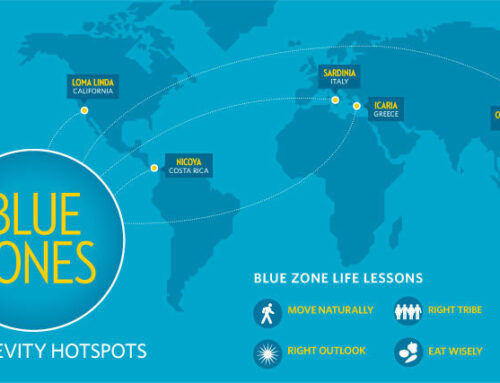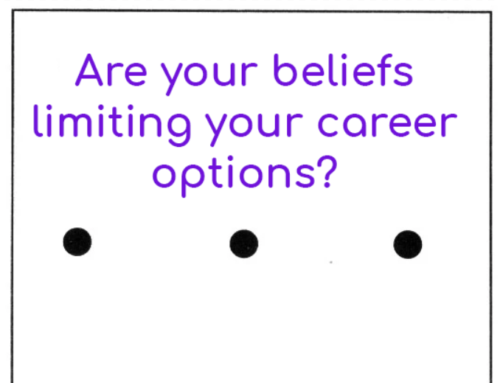I’m going to make a bold statement – success is largely determined by your focus.
What makes me so confident stating this?
Well, looking back at the last 10 years, I’ve launched 3 businesses, all with different levels of success. What characterizes my biggest successes is that I felt very clear and focused at the time about what needed to be done at that particular time.
Not all the things you do matter equally, some things matter more. A lot more in fact.
Furthermore, we live in a world where we get overwhelmed with distractions and interruptions, we have a hard time saying no to things and most people react to stuff rather than plan ahead. Having a purpose that drives you forward is also crucial.
I believe that if you want to achieve success in your life and career, you need to work on your focus. I’m going to share with you the 7 techniques that I have picked up along the way, and which have all been significant contributors to my successes in work and business.
1. Having a purpose is key
Without a purpose, or a reason for why you’re doing what you’re doing, it’s impossible to maintain focus.
I came across this metaphor of thinking of purpose, priority and productivity as three parts of an iceberg. Typically only the very top of the iceberg is above water, so what you see (=productivity) is only the tip of everything there is. However, what you see is very much determined by what you don’t see. The more productive people are, the more purpose and priority are driving them forwards.
So if you find it hard to keep up your focus and productivity, could it be a sign that you need to look at why you’re doing the work you do? Does it actually matter to you?
If you have lost the passion for what you’re doing, don’t despair. Have a read through my article I want to change job but don’t have a passion (help me!) for a step by step approach on how to discover something you can feel excited about again.

2. Create healthy habits
Creating healthy habits is something I’ve experimented a lot with, both in terms of my work habits as well as my healthy eating habits. It really works, and here’s the reason behind it:
Success is like a short race – a sprint fuelled by discipline just long enough for habit to kick in and take over.
So when you discipline yourself, you’re training yourself to act in a certain way. When you do this long enough, it becomes a habit. Habits require much less effort to maintain than to begin.
When you see ‘disciplined’ people around you, what you’re actually seeing are people who have trained some healthy habits into their lives. They weren’t born with healthy habits, no one is.
Studies conducted by ie. University College of London have shown that it takes an average of 66 days to acquire a new habit. It might sound like a lot, but once you’ve acquired the habit, not only do you feel proud for achieving an important goal, but it also frees up your mind to focus on other areas. Perhaps starting on another healthy habit? I can warmly recommend the work by Stephen Guide on ‘mini habits’, for practical advice on how to implement these new small habits in your life.
People do not decide their futures, they decide their habits and their habits decide their futures.
3. Use self-orienting questions throughout the day
Most of us try to do too many things at once, and over the course of the day it’s common that our concentration slips and we start doing small meaningless tasks.
What if instead you try to develop a habit (by following the advice above) to tune in to what you’re doing in this very moment, and asking yourself if it’s really the best use of your time?
A great question, as advocated by Gary Keller in The ONE Thing, is to ask yourself:
What’s the one thing I could be doing right now, such that by doing it everything else will be easier or unnecessary?
If you can make it a habit to ask yourself this several times a day, it forces you to line up your tasks in the right order of importance. Each time you ask it you then see your next priority. By doing this, your actions become a natural progression of building one thing on top of the previous thing.
It goes back to what I mentioned in the beginning – we see the biggest results from the smallest and most focused efforts, so don’t just be busy for the sake of being busy. Check in with yourself, again and again, and ask yourself if you’re really doing the most important thing right now.
Mindfulness training, which I’ll talk about next, is extremely useful in helping to cultivate the habit of self-orientation throughout the day.
4. Mindfulness
Having dismissed mindfulness for years because I found it difficult, I’m now a complete convert. There are many ways to practise it, but my favourite way is using the Waking Up app by Sam Harris.
Coming from a perspective of part Science, part Philosophy, Sam’s approach is quite unique. Not only have I had several mini breakthroughs in my mindfulness practise, but his life lessons are highly interesting and really hit home. Mindfulness doesn’t just increase your focus, it helps you stay in control of your emotions and has numerous other health benefits.
One bad habit I have managed to shed by being more mindful is multi-tasking. Multi-tasking was all the rage 10-15 years ago, but increasingly studies have shown that it just doesn’t work. When we keep switching tasks it comes at a cost we often don’t realise we’re paying. This includes, but isn’t limited to, loss of focus, lower standards of work and developing a distorted sense of time.
A master in mindfulness would call this ‘monkey mind’.
5. Planning and Time-blocking
I’m a big believer in planning my day and week in advance, as well as scheduling in time blocks to work on my most important work.
Let me explain exactly what I do. Firstly, I set aside the largest chunk of time to my most important work. In fact, I allow about 10% more time than I think I need (this prevents me from getting stressed when my work gets interrupted by unavoidable distractions).
Time blocking is a very results-oriented approach, and it ensures that everything that needs to get done, actually gets done. Because of Pareto’s principle, some things matter more than others. Therefore it’s only logical that you would set aside more time for the important stuff, rather than the many insignificant tasks you could be attending to.
I made a breakthrough when I realised that it’s really not about ticking off all the things on my daily to do list. As I’ve argued repeatedly, some things matter a lot more than others. A different way of looking at your to do list is to re-brand it as a ‘success list’. A success list is a much shorter list, it’s like a to do list with Pareto’s 20/80 principle applied to it (20% of your efforts contribute to 80% of your results.)
Always ask yourself if you’re doing the most important thing right now, by using the self-orienting questions and the mindfulness habits, as explained earlier. You can even schedule these reminders into your diary – that’s what I did until they became ingrained habits.
6. Learning to say NO
It’s difficult to say no, I get it. You don’t want to disappoint people, and you want to be helpful. That certainly used to be my train of thought.
However reading this statement made something in my head click:
When you’re saying yes to something, you have to accept that you’re saying no to something else.
In other words, there is only so much time and attention in a day, and by agreeing to do something you’d rather not do, you’re simultaneously taking away time from something that is important to you.
Going back to the idea of blocking my time for my most important work, I started adopting the mindset that these blocks can’t be moved. I now treat them as being as important as a client meeting. Once you start practising this, it becomes a lot easier.
You can say no with respect, and you can say no while coming up with alternative suggestions. You can still be sympathetic, without changing your time blocks. Ultimately, if you’re not looking out for your own best interest, no one else will either.
7. Get enough sleep
My last but certainly not least piece of advice is to make sure you get enough sleep.
Having read the book Why We Sleep by Matthew Walker, I am more convinced than ever that sleep is an absolute wonder remedy. It restores your memory, your decision making abilities as well as your ability to focus.
Yes, there are successful people who claim to sleep only 4 hours a day, but either they’re amongst the 2% that are able to function with little sleep, or they’re succeeding in spite of their lack of sleep. For the rest of us, 7 or 8 hours are needed to perform at our best.
Conclusion
From my experience, focus really is key to success.
If you’re finding your focus to be unclear, I hope you’ll try out some of these methods. A lot of them are interconnected and self-perpetuating, so if you try out even just a few of them, you’re bound to see results.
PS: Which method are you going to try out first?







Leave A Comment